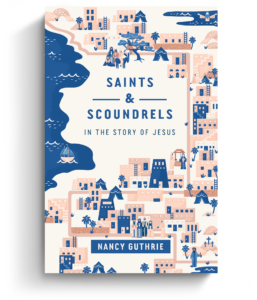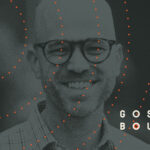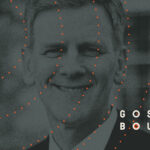Proverbs 31 ends with a famous description of the woman who fears the Lord. But do you remember Proverbs 31 starts with an exhortation for men? Proverbs 31 commends men who do justice—men of wisdom, self-control, and courage.
In his new book, The Intentional Father: A Practical Guide to Raise Sons of Courage and Character (Baker), Jon Tyson writes:
Men who use their energy like this, courageous men, wise men, self-controlled men, just men—these kinds of men are the need of the hour. Foundational values in your son’s life may lay the foundation for a renewed society.
Tyson’s book equips intentional fathers to help their sons reach their redemptive potential. These fathers view their task as a calling from God and raise sons with all their might. He writes, “The goal is to help young men fulfill their God given values of being conformed into the image of Jesus.”
That’s easier said than done at a time when boys grow up learning life should be easy, they’re important, life is about them, they should try to control everything, and they can live forever. When the world is telling you otherwise, how do you learn to embrace difficulty, care for others, surrender to a greater cause, and live for eternity? Tyson’s book can help. He points us to a God who embraced difficulty with us, who emptied himself, who lived for others, who surrendered to the will of his Father, and looked ahead to eternal rewards.
Tyson is a pastor and church planter in New York City who moved to the United States from Australia more than two decades ago. He joined me on Gospelbound to discuss The Intentional Father and also his 2020 book, Beautiful Resistance: The Joy of Conviction in a Culture of Compromise (Multnomah). Much as he argues for the family, Tyson commends small, thick communities that will endure for generations amid temptations to compromise. You’ll also recognize this Gospelbound theme:
All great revivals have taken place in times of decline. Resurrection is found among the dead. I want to call you to resist compromise when your friends tell you your faith is too intense, your devotion unnecessary, your life together too much.
I enjoyed my conversation with Jon about fatherhood, risk, discipleship, and more.
Transcript
The following is an uncorrected transcript generated by a transcription service. Before quoting in print, please check the corresponding audio for accuracy.
Collin Hansen
Proverbs 31 ends with a famous description of the woman who fears the Lord. But did you remember proverbs 31 Starts with an exhortation for men that proverbs 31 commends men who do justice men have wisdom, self control and courage in his new book The intentional Father A Practical Guide to raise sons of courage and character published by Baker, John Tyson writes men who use their energy like this courageous men Wiseman, self controlled men, just men. These kinds of men are the need of the hour foundational values in your son’s life may lay the foundation for a renewed society. Well, Tyson’s book equips intentional fathers to help their sons reach their redemptive potential whose fathers view their task as a calling from God and raise sons with all their mind. He writes, the goal is to help young men fulfill their God given values of being conformed into the image of Jesus.
Collin Hansen
But that is easier said than done at a time when boys grow up learning life should be easy, that their important life is about them. They should try to control everything, and they can live forever. How do you grow up that way? How do you learn to embrace difficulty care for others surrender to a greater cause, and live for eternity? Will Tyson’s book can help he points us to a God who embrace difficulty with us who emptied Himself who lived for others who surrendered to the will of his Father and looked ahead to eternal rewards. Uh, John Tyson is a pastor a church planter in New York City. He moved to the United States from Australia more than two decades ago and joins me on gospel bound to discuss the intentional father and also his 2020 book beautiful resistance. The joy of conviction in a culture of compromise published by Multnomah much as he argues for the family and his earlier book, Tyson commend small thick communities that will endure for generations commit temptations to compromise.
Collin Hansen
You’ll also recognize this common theme from this podcast gospel bound quoting from beautiful resistance here. All great revivals have taken place in times of decline. Resurrection is found among the dead, I want to call you to resist compromise. When your friends tell you your faith is too intense, your devotion unnecessary, your life together too much. Alright, so I’m eager to talk with John about fatherhood risk, discipleship, and more. John, thanks for joining me on gospel bound. Well, great to chat with you, mate. Thanks for having me on the show. All right. Well, John, you define a man this way you say a man is an image bearer and Son of God, entrusted with the power and the responsibility to create, cultivate, care and defend for God’s glory, and the good of others. Now, listeners might not know how hard it is, in this cultural moment to define manhood.
Collin Hansen
How did you arrive at this definition? I definitely agree. We’re living in very complex times where people can’t seem to answer the question, what is a man? What is a woman? What is gender? And why is it important? I think I tried to put in there basically just through meditation on what the Scriptures teach, and obviously from the person of Jesus, there’s something about being made in the image of God baring his image. But what do we do with that? There seems to be a kind of unique gift of strength, attributed to men, particularly in the scriptures. Obviously, women can be strong too. But there’s, there’s something in there that rings true, I think in men’s hearts. And then how do we live that out and see that strength modify to the person of Jesus? So it was basically just like a lot of meditation and trying to patch some sort of coherent definition together?
Collin Hansen
And I love this question that comes after one of your earlier chapters in the book is designed for, for group discussion, I would see it working really well in groups of fathers. But you asked a question or pose it to the readers, what are two or three of the top lessons you learned from your dad? While you were growing up? One of the things I’ve said after many attempts, John, to publish on manhood at the gospel coalition only to find that ad is a hard task to do in the internet.
Collin Hansen
I mean, it’s just it’s harder to do than I thought. And I’ve often thought, it seems that manhood is easier caught than taught. And your book is really a manual of many ways of how to help your son to catch it from his father. And but I want to turn this around and ask you what are two, the two or three of the top lessons you learned from your dad growing up?
Jon Tyson
Well, you I think you definitely touch on the deep felt need for men to come to terms with the forces that have shaped them, made them who they are. And I definitely agree, it is easier to get men together and process this stuff than it is to write about it in public and talk people into it. That I mean, there’s a lot there about what that means that, you know, men struggle to deal with this in public. I think there is deep deep pain and you’re touching the soul on a deep level. Whenever you start talking about the home and the father, my dad is a good man. My dad is a godly man. And he’s very, very kind and he’s muddled servanthood a lot. If I was to ask, what I’ve learned, ask myself what I’ve learned most from my dad number one would be prayer.
Jon Tyson
My father is a man of prayer. So I mean, that book is dedicated to my father and Tyson whose prayers have carriedthis far, when I was a teenage rebel, wanting nothing to do with faith, God, the church, my father basically went after me. And he would spend significant amount of time praying and fasting and calling me back in the spiritual realm from rebellion. And I know that sounds kind of like dramatic and Pentecostal, Lee, but I think it was just the desperate love of a father saying all my natural mechanisms have run out. So I’ve learned about the importance of prayer. And I think the other thing I’ve learned from my dad, is the need to overcome generational brokenness. My grandfather was a missionary in India.
Jon Tyson
And a man that had a very dynamic and supernatural ministry, sharing the gospel saw a lot of remarkable miracles. But he was a terrible father, my father grew up in a boarding school in India, only saw his dad a couple of times a year and was deeply deeply wounded by the giant absence of a father. So my dad did everything in his power not to pass that cycle on. And so I think he had a conscious awareness of how he was raised. And he, he did his best to bridge the gaps and give me what was not present in his life. So that desire to sort of draw a line and say, This stops here. And let me start a new legacy, something I definitely got from my dad that I tried to carry forward and how I raised my son, Nathan,
Collin Hansen
You make a great point, Jon, that followers of Jesus have a tremendous advantage in developing young men, because we’re embedded in rich communities of other men and other families. I was thinking about an earlier guest Lyman stone on gospel bound, where he said, one of the ways we’re going to have to help people in a post Christian context to see the truth and the beauty of Christianity is by showing them how it works, the benefits that you enjoy as a Christian, and this when you said this, I thought that is a May I mean, that’s so true. I take that for granted that my sons are just surrounded by other older men and sons, men who are involved fathers men who care deeply about that. And so help us, help us see what was your best advice for how Christian fathers can take advantage of this blessing in in fatherhood?
Jon Tyson
Well, I’m in the books as I want to be through the books called the attentional father, not the perfect, Father, this book does not come with promises. It just comes with the nobility of doing something with integrity, the outcome is up to God. I mean, we know that I do believe in sowing and reaping, but I just want to put that disclaimer out there. So but my answer will be, we do it through intentionality, you know that the culture we live in is such a blizzard of distractions right now. Kids schedules that kids are so overscheduled, travel sports pressure beginning to high schools, colleges, if a Dad’s not careful, all is going to do is just go along with the cultural flow. And so that possible benefit is going to be missed out.
Jon Tyson
So it would be intentional prioritize, gathering with the people of God, expose your kid to the church as a whole, not just student ministries, let him have access to that rich community of men and see what it is. Some of the dads in our church right now are doing something beautiful. The dads and the sons get together once a month right now talk about an issue, in part one specific skill. And then each Dad and son take a turn sort of modeling this.
Jon Tyson
And I thought, Gosh, outside of the scouts, which are not even the Boy Scouts outside of the scouts, where does that happen? And again, there’s very few places where this works. I remember very clearly after Hurricane Sandy in New York City, the city was scrambling to get volunteers. And Christians were just texting small groups. And I remember one of the people who worked for the city saying, Who are you people? And where did you come from? And I was like, I’d like to introduce you to the body of Christ. This is the Christian church, we’re still have these rich networks of connections. So expose your son to it, take advantage of it, integrate him into it and don’t let American culture sort of fragment the opportunity
Collin Hansen
that seems to be related. John, to that point, I liked your this progression that you give for fathers starts with AI Do you watch we talk? Then it goes through a number of different steps to you do and someone else watches? Is there any difference between doing this with your son as a father and doing this with another believer in discipleship or is it roughly the same thing?
Jon Tyson
I think it is the same thing. But there is some kind of that’s originally from Dave Ferguson, I think in his book exponential. One of the things I think is important to acknowledge that there is a deep primal ache that we have for our fathers to be present and our fathers to impart things to it. So yeah, the process is the same but I think the emotional connection the the spiritual informational experience is a little bit more potent and getting that kind of attention is a gift getting, having your dad spend that much time with the roof and pass that on is its own form of blessing. And so yeah, it’s it’s general discipleship and our guest that this book, in essence is a book of discipleship for dads to disciple their sons. But I do think it comes with some extra potency because of the relationship in which that that is happening. This really
Collin Hansen
stood out to me. And it’s, I’m still trying to process exactly what it means in my own life. But why should we think of our own father, as a boy looking for love.
Jon Tyson
And because so many men basically are at, you know, where we’re chronologically, men, but in many ways, unformed, half finished, and still dealing with wounds below the surface that time has covered up, but definitely has not healed. And I think they should do two things, it should put the fear of God in us. And it should also create a sense of mercy in us, it should help us it should humanize our fathers, it should let us see them as people and realize that they have struggled to get their lives together. So I think it will give us mercy. It will help us honor their efforts, even knowing what it is that they’ve overcome.
Jon Tyson
But it should also help us as we begin to have our own sons realize, like we got to get our house in order, we got to get our stuff together. Because if we don’t consciously work on turning these things, from wounds into scars, we will more than likely wound our kids in the same way or use our kids for one justification or to deal with our next. This is definitely something we see in New York. And I’m sure it’s actually true everywhere. It’s parents trying to relive their lives and get right to the kids, rather than letting their kids be who God’s called them to be that put that pressure on them to get another shot.
Jon Tyson
So we need that healing. It’s an important part. And not a lot of folks, people talk about the roles that men are supposed to play quite often. But we rarely talk about men’s hearts, their need for healing, dealing with their brokenness, dealing with the epidemic of loneliness and sadness that’s often there. So it’s important stuff. And I think being a dad is actually a gift because this the thought of projecting this into the life of your kid. It’s like a mirror that you only get once or twice in life where you realize I’ve got to really bring this to God, I’ve got to lay my heart before him, I’ve got to grow in this. So it is definitely a challenge.
Collin Hansen
I wonder if it’s becoming more of a challenge, John, because of the way that trauma narratives have become so central to our identities. And so there’s a sense in which we’re almost trapped in that trauma or almost not even imagining that we can escape it because we lacked the resilience to overcome it. Do you see that as a potential challenge for people picking up your book to see, like when you talk about the generational sin, I think that’s a great call to Christian discipleship and resilience and a trust in a sovereign God to say, and I think about this a lot, I think about certain sins where I say, This stops here. Now I look at other sins, and I say, oh, man, I’m still perpetuating that I got to repent. I need the Lord, I need the Spirit’s help in this one. But But how might that kind of centering of trauma and that that overwhelming in many ways a self diagnosis of, hey, men trapped? I think maybe the flip side to that is another thing I’ve been reading lately, which is about how many young people now are cutting off relationship with their parents, because of a sense of, you know, I can’t be around your toxic stuff. And I’m not talking here, physical abuse, sexual abuse, things like that. I’m just sort of talking about some of the more run of the mill challenges that we have as we mature. It’s kind of a complicated question, but how might some changing understandings of trauma, perhaps affect how people implement that advice from your book?
Jon Tyson
Well, human beings, God has made us to be breathtakingly resilient by nature. And human beings are actually quite good at dealing with trauma. If we have the right relationships and mechanisms in place, so trauma comes to us. And if we acknowledge it and and get healing, our capacity to move beyond trauma is quite breathtaking. That’s a gift of God and how he’s wired us. I think the emphasis on trauma is because so much of it was overlooked. Oh, yeah. So it’s been a correction brought into the light, because there’s a lot of things that were just stuffed away that did a tremendous amount of harm for people. But I do believe that we have to, we have to confront it. And it’s often a visceral process.
Jon Tyson
And again, men are often you know, like, not as comfortable with emotions and even Christian communities are not they’re not comfortable with, with aggressive emotions, or just that level of pain, anger, vulnerability, we tend to just have a veneer of niceness. So yeah, getting it out can be painful and It can be real, but I actually see this opportunity, you know, people talking about the trauma they’ve been through is also an opportunity to lean into healing, to be honest with the paint they’ve had. And I think that getting breakthroughs around this stuff can help break generational cycles. As far as kids wanting to sort of separate from their parents, I mean, that that is the classic age of authenticity, you know, it’s like, I’m going to self actualize and anybody who disagrees with me as a threat to be removed, you know, not a word of wisdom or insight or anything else.
Jon Tyson
So that is that is definitely generational. I think it’s a tragedy that there are not love bond, sufficient love bonds and family dynamics that can stay together in spite of disagreement. And I think that’s an indictment on the church’s failure to love. And if gosh, if a family can’t have a disagreement about politics, or, you know, cultural issues, I’m not talking, obviously, very, very ungodly ones, but once that Christians, you know, can fit within their paradigm that’s speaking to a deeper issue that we have to work on. And I will say this, you know, I’ve had quite a bit of pushback on the book saying, it’s too intense, you know, it’s like, well, this is unrealistic. And um, well, I simply answer well, what’s realistic American culture done for us? What’s what’s realistic Evangelical Church done for us?
Jon Tyson
You know, we’ve come out of a 20 year experiment with men’s ministries, and I look around and I’m, I see such little fruit, it’s not a critique of them. It’s about the, it’s about the strength of the need. I remember going to a Promise Keepers rally. And I just think this was stadiums of fathers prop making promises. And I look around the world today, and I say, Where’s the fruit from that? Again, I’m not bashing those ministries as such as highlighting the challenge and the need to have an intensity around this. So hopefully, this does serve as some sort of, as the generation is crying about their pain, hopefully, this will be a force of healing, and, you know, can maybe start even in small ways, some different generational cycles of blessing rather than simply passing on the brokenness.
Collin Hansen
I wonder, John, if it might be helpful for the listeners to know if I’m understanding you correctly, a lot of your analysis here of what it takes for both the church and families to do depends on a read of the culture in thick terms, as opposed to thin terms, meaning that it seems as though you’re recognizing that some of the conditions of modernity are a deeper problem in more basic elemental ways to Christianity, than probably a lot of Christians have realized. Am I right? On that kind of read?
Jon Tyson
Yes, you’re absolutely. You’re right, on two levels. Number one, there’s a bunch of things happening sociologically that we’re experimenting with the families in ways that no society has really, really done at scale, like we are. And I think some of our reactions to that have been very, very unsophisticated and underdeveloped. I think that’s definitely true. And I think we’ve let some of the big logic cultural issues which we may push back on stop us from really examining the smaller cultural issues, which are actually robbing us of the things that were a part of. So the traditional family home, I mean, I grew up when I was little, we would do like a family devotion, you know, we had a family altar, that sort of thing.
Jon Tyson
I mean, that that’s a very, very rare thing today in a typical evangelical house to have parents are consciously cultivating a place where God is honored and the scriptures are read. And I think it is definitely a real challenge. And we’ve got to discern the forces that are sabotaging our best efforts. I think, hopefully, reading this book will give some dads both inspiration about how people have got it, right and other times of history, and then some warnings about the consequences of not waking up and not paying attention to some of these things.
Collin Hansen
Your book is full of so many helpful suggestions, you route them in biblical and theological reflections, but they also come from your experience, and I can understand why some people think of them as being intense, at the same time I agree with you, we’re gonna have to push back. We can’t just assume that we can depend on cultural institutions to be able to accomplish these things, especially when many of them are, are certainly working at cross purposes. But, I mean, I just found the book to be basically helpful in that way at a time when there’s very little, there’s very little formation in those ways. And so you you describe, I mean, a basic thing in here. And I kind of thought, huh, you can’t take this for granted. You describe in there how you helped your son transition from seeing your wife, his mother as the central figure in his life to you just describe what your your thought process was on that and what that looked like.
Jon Tyson
Yes, that’s the most controversial part of the book period. And it always is, and everybody talks about it. My son and my wife, my sons are almost 22 Now, so that this happened almost 10 years ago, my son has a wonderful relationship with my wife, and she was obviously very involved in his teenage years and all the rest of it, but there was some there was some kind of instinct and this was basically just studying sociology and history but There’s something about a young man’s energy where, when he’s, and he’s got chemicals pumping through his body, his body, his social dynamics are changing.
Jon Tyson
There’s a lot of confusing things happening in a young man’s life is, as you remember, and as many of the listeners will be aware of. And so I wanted to consciously say to him, Hey, you’re going to be handed over or brought into a rich community of men, they’re going to help you make sense of these very confusing energies. And part of the the goal of maturing means that you have to learn to embrace difficulty, and you have to put away childish things as the Apostle Paul said.
Jon Tyson
And so I knew that my wife, and many mothers instincts can tend to be very, very nurturing. And so I was like, if if he only if I pushed him, and then all he did was went back to his mom for comfort, he would never learn to develop within him since that sense of strength or resilience. And that was basically a design a dinner designed for my wife to bless him. And to basically say, Hey, I’m, I’m focusing your attention to your father and a community of men to help you grow and grow, grow into a man. And he will be directing the majority of your formation in the coming years. And that was harder my wife, and she, that that particular night, but when I was walking across Spain, with my son, we did the Camino de Santiago, which is a 500 mile hike just to sort of debrief, he did a gap year, and a lot of times, there’s sloppy processing on the back end, and they can get disillusioned.
Jon Tyson
So I said, let’s just go on a walk for a month and talk about these things. And I said to him, hey, Nate, are getting quite a bit of pushback on that dinner. And he said, he stopped. And he said, No, you must include that. Like, I cannot tell you how important that was, for me, psychologically, to understand that I was entering into a different part of my life and journey. And so that’s just the the proof of 113 year old kid processing it, but he was visceral, he’s like, You cannot take that out, no matter how much people push back. There’s something powerful about being your dad stepping in and saying, let me let me show you how to live as a man. There’s something powerful about that happening. And I think almost all societies have done it, except as well,
Collin Hansen
One of the difficulties that, it seems, is that when you’re dealing with the wisdom of the ages, you might look at something like this and think every generation before us knew this had to happen, what have we lost. But of course, there are certain things that every generation took for granted that were bad. And so that is a very difficult situation for all of us to be in, to try to figure out how to sort that through. And I have a natural conservative bent to say that I’ll aggregate the wisdom of the ages and take my chances. But because the conditions have changed so much, he feels like everything is up for grabs. And one of the things that happened when my son was born, is just had a lot of conversations with my wife about about being parents of having a son thinking about our own own history.
Collin Hansen
And I know these are stereotypes that are stereotypes for a reason, but thinking about how you have a girl, the wife has a girl and you kind of expect, we’re gonna have a bumpy ride there, probably through the teenage years. But hopefully, we’ll come back and we’ll be friends again one day. But the interesting thing about boys with their mothers is that there’s a sense in which they’re closest at the very beginning. And it’s a, it’s a move away forever. From there. Like I mean, the intimacy of the womb, the intimacy, of nursing, of diapers, of changing all sort of stuff, but but then you move away. And like you said that the father takes a much larger role into things of being able to show what does it mean to grow up and to, and to use this strength in godly ways to care for others to protect others.
Collin Hansen
And then of course, it seems that if that son grows up and gets married, it seems that sometimes that that wife is a difficult dynamic for the mother, in many cases. And so it just seems that these are natural things that just happen. And yet, for some reason, they’re very difficult to talk about, I find a podcast is easier to talk about them. And I appreciate you taking a chance on the book. Because it’s precisely that is precisely when you share something that sort of strikes us as huh. Is that really true? Actually makes us think about what we take for granted in our cultural formation. My case for why I’m glad you included that in there. A common theme in both books is risk. That’s a big theme in your ministry, and how did you learn to embrace risk because we do live especially, I think, in a increasingly risk averse society. And so how did you learn to embrace risk? And I guess, how do you know when you’ve taken it too far?
Jon Tyson
Well, it’s interesting. I don’t think anybody has ever said to me before risk is a theme of of my riding in ministry. I mean, it definitely is. It’s one of my core values. I think part of it honestly might be sort of the Australian spirit.
Collin Hansen
I wondered about that.
Jon Tyson
Well, I mean, you know, the, the obviously, like, you know, half ago, what’s the worst that could happen? Definitely something in me like that I dropped out of high school when I was 16. To do an apprenticeship in a butcher shop, I never finished high school. And it wasn’t because I was lazy. I was like, let me take a risk, I think I can, I think I can get into business at 16 and make more money than my friends can at 25 was like a calculated risk. And you know, moving to America was a risk. After I finished that apprenticeship, I just sort of packed everything up and then moving moving to New York to start a church was a risk.
Jon Tyson
So I don’t, I don’t want to project that onto other people. I think part of its Australian culture, my number one spiritual gift is the gift of faith, just the capacity to believe God, who he is, I live with a very, maybe this would be a distinctive, I live with a very, very profound sense of awareness of being in a covenant with God. So I mean, everybody knows that our relationship with God’s covenant tool, but it’s, it’s so real to me. And so I think lots of times, I’m relying on the boundaries of that covenant and those covenant promises. So I’m navigating my risk in light of being in it with God, not recklessly leaping, saying, God, you’re going to have to bless it, or human ambition, it’s that deep sense of I was meditating this morning and Joshua, you know, be strong and very courageous.
Jon Tyson
Do not be fearful. And I was like, this is Joshua, who seen the glory, he’s seen the power, he’s seen the miracles of God. And yet, when God tells him to step into his destiny, he says, to remind him not to be scared. And that is that his covenant or command, I’m with you, the Lord, your God is with you. I don’t know, man, that I’ve been haunted by that covenantal understanding of my faith from my very, very early days, and it just produces like a godly confidence. I think I also have an awareness of eternity, where I’m like, I realize how short life is like, people who know me, like a domain closely said, John is haunted by an awareness of time, I’m probably the most time conscious person I know that I’m around. And so I’m like, Let’s go for it. We have eternity to to have our eternal Sabbath rest.
Jon Tyson
So I don’t know personality call of God, spiritual gifting, theological frameworks, psychology of time. I don’t know. There’s a lot in there that I mean, honestly, you put it back down. I mean, not not in a decree sense. Or in an outcome sense. But Jesus whole life was risk. You know what I mean? him and he’s willing to make bold choices and step out the crosses, the willingness to, to say yes to the Father’s Well, I mean, there’s this a lot in Jesus life is reminding us that we should be moving forward in faith and not shrinking back in fear. So I don’t know. I don’t know if that’s helpful. But that’s is experiencing comes from
Collin Hansen
Yeah, it’s extremely helpful. I don’t know that I would describe myself necessarily in the risk category. But, but I think people would say that I’m very intentional. My wife would say that very intentional. And that’s why the title title fits your book. It describes it so well, the intentional father, a practical guide, to raise sons of courage and character. And I think there’s going to be a spectrum of people on risk, there’s going to be a spectrum for fathers on intentionality. One thing I want to leave people here encouraged with is to say that the book is full of so much good practical advice, some of it will stretch you some of that you may not take, but I want to say that it doesn’t take that much to truly be intentional and to push back. If all you do is have that family altar, of course, that you describe their job, and you take your kids to church, you’ve already done more than just about any other job to do these days.
Jon Tyson
It’s I remember Andy Crouch saying you want to live a radical life, give 10% of your money and don’t watch TV and you can like anyone you like, that’s so true.
Collin Hansen
That’s what that’s what I mean, you start early on giving 10% You don’t watch TV, you read books, you you, you have friends over, you take your kids to church, and you read the Bible and sing and pray together every night. I mean, that’ll do it. That’s the resolution. Right? Right. Exactly. It’s not it’s not it’s no guarantee, like you gave the important caveat. But like, if you just do what are basics, you will be so you’ll be so countercultural, but you will also be so you’ll be contented. I mean, it’s it’s a happy thing. So I kind of feel like I want to sell it. And that’s yeah, it’s just one reason why I just I love the book.
Jon Tyson
Well, you you, I mean, you’ve written about revivals of moves of God. This is one of the great passions of my life. I went over to the Hebrides and when talked with the folks who experienced that, that revival and one of the things that was so fascinating to me reaffirming what reaffirming what you’re saying, the amount of people who said, the religion of my childhood came back to me in power when the Holy Spirit came is extraordinary. And we, even if we don’t see any fruit in the moment, by having intentionality with our kids around faith, we are sowing the seeds in their lives for a future harvest. And I know there’s a lot of kids who walk away from their faith, but honestly, statistically, the majority of those people weren’t kids walking away with a level of intentionality that you and I talking about. No, absolutely. And, and I think there’s so much power in just doing what you can not what you can’t, doing it with faith, believing that God will breathe on it even even if not right now later. And that’s a good word. I mean, I wish I had some more kids to raise, you’ve all inspired.
Collin Hansen
I think sometimes people see the exceptions. And they think that that’s the rule. They see high profile, pastor’s kids things like that turn away from the faith deconstruct, and they think, Oh, what is what difference does it make? Well, I’m not trying to, you know, squelch the Holy Spirit here. But if you just look at the statistics, Lyman stone, others point this out, you do three, like, it’s like three intentional things each week, family worship, worshiping a congregation, you do those as a family, the likelihood of your children walking with the Lord is almost, I mean, it’s almost one to one, it almost always happens, it’s very rare, that they won’t do that when you think about the way you shape the way they you shape their view of the world. They you shape their expectations, their hopes, their dreams, their fears. And you instill this catechetical mindset, not only in just behaviors, but also in beliefs. And yeah, it may go away for a while, but it never quite leaves you. You combine that with an atmosphere of love, man, that is just, I want to I want to encourage parents in that and I think they’ll find your book to be a very instructive guide in that. So John, I want to hit a final three with you. Okay, so we’ll do quick, quick style on these. How do you find calm in the storm?
Jon Tyson
I get up early, I drink coffee. And I do three kinds of reading. I read the scriptures, I read theology, and I read a devotional book from my heart. And if I get that time in the morning, the level of joy and gratitude is very, very high. So just abiding is how I’d summarize it. Love it.
Collin Hansen
Where do you find good news today,
Jon Tyson
from talking with leaders in my church, in New York is very anti Christian at a meta level, but people are desperate at a personal level, and the amount of people whose hearts are open meeting Jesus. It’s, it’s very exciting. So I get a lot of joy there.
Collin Hansen
That’s cool. Andwhat’s the last great book, you’ve read?
Jon Tyson
The last great book I read was a book called The deeper journey by Robert Mulholland Jr. and it was a book on the false self. And it’s basically an exposition of Colossians about putting to death, our old man and what it means to have our lives hidden with Christ. And God actually is a little bit similar to sort of like a counterfeit Gods book, diagnosis of idols and our false selves. But I got done reading that book. And I just remember thinking, this is the solution to every one of my exhausted non believing friends, trying to invent an identity and proof the way in the world. I mean, just it was a beautiful book.
Collin Hansen
Perfect. My guest on gospel bound this week, John Tyson, you can pick up his book, The intentional father, a practical guide to raise sons of courage and character published by Baker that was focused on our conversation, but you can also check out his 2020 book, beautiful resistance, the joy of conviction and a culture of compromise published by Multnomah John it’s been wonderful. Thank you.
Jon Tyson
No worries. It’s been great. Thanks.
Consider Jesus’s Generous Grace with This Free Ebook
 John the Baptist. Judas. Zaccheus. Caiaphas. We could quickly label these individuals as heroes or villains—but each of their experiences with Jesus provides a unique and unexpected glimpse of his generous grace. What might we have overlooked in their familiar stories?
John the Baptist. Judas. Zaccheus. Caiaphas. We could quickly label these individuals as heroes or villains—but each of their experiences with Jesus provides a unique and unexpected glimpse of his generous grace. What might we have overlooked in their familiar stories?
In Saints and Scoundrels in the Story of Jesus, seasoned bible teacher Nancy Guthrie provides readers with a fresh look at some of the most well-known personalities described in the Gospels.
We’re delighted to offer this ebook to you for FREE today. Follow the link for instant access to a resource that reminds us of the only hope for supposed saints and scandalous scoundrels—the mercy of God
Collin Hansen serves as vice president for content and editor in chief of The Gospel Coalition, as well as executive director of The Keller Center for Cultural Apologetics. He hosts the Gospelbound podcast and has written and contributed to many books, including Timothy Keller: His Spiritual and Intellectual Formation and Rediscover Church: Why the Body of Christ Is Essential. He has published with the New York Times and the Washington Post and offered commentary for CNN, Fox News, NPR, BBC, ABC News, and PBS NewsHour. He edited the forthcoming The Gospel After Christendom and The New City Catechism Devotional, among other books. He is an adjunct professor at Beeson Divinity School, where he also co-chairs the advisory board.
Jon Tyson serves as the lead pastor of Church of the City New York and is the author of Sacred Roots, A Creative Minority, The Burden Is Light, and his newest book, The Intentional Father: A Practical Guide to Raise Sons of Courage and Character. Jon lives in New York with his wife and two children. You can follow him on Twitter.


































